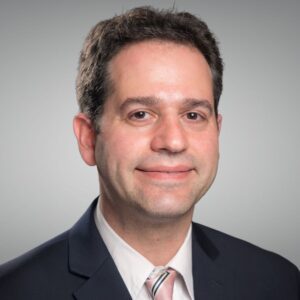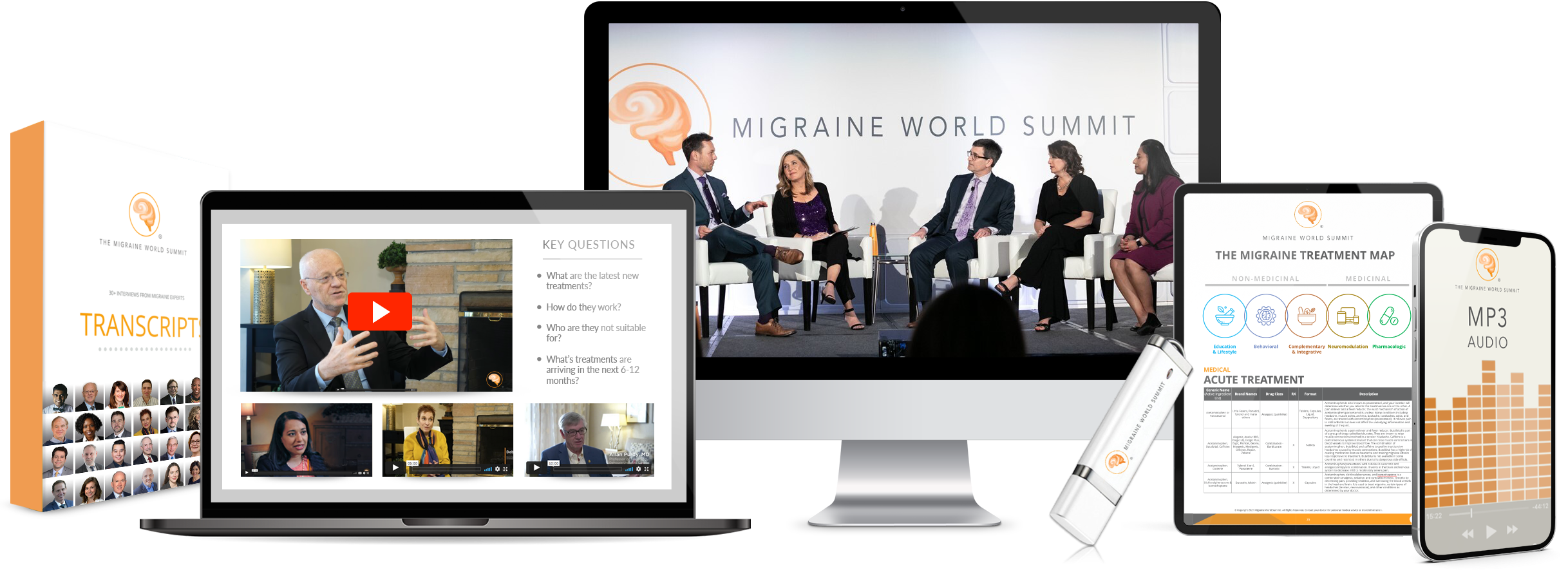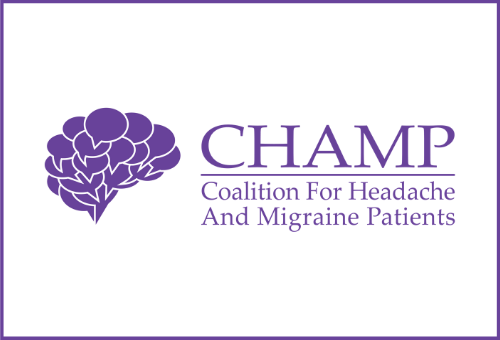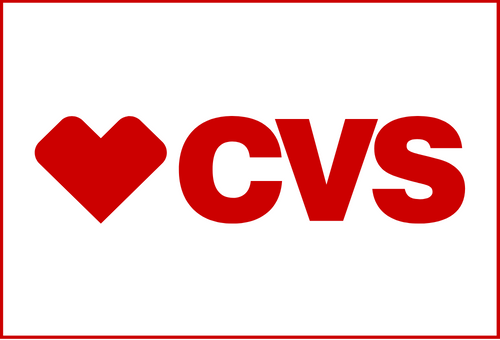What to Expect: Nurtec ODT, Ubrelvy, Qulipta & Zavzpret
You are currently watching a preview of this interview. Unlock the full version by upgrading to an Access Pass bundle! Get FREE access to 8 expert interviews from Day 1 and Day 2 when you register today!
Key Questions
- What are CGRP small-molecule receptor antagonists (gepants)?
- How are gepants different from CGRP monoclonal antibodies?
- At what stage of a migraine attack should a gepant be taken?
- What gepants are currently available and how do they differ from each other?
- What are the doses and administration for each gepant?
- How does a doctor decide which gepant to try for each patient?
- How do gepants differ from triptans?
- What are some other options for patients who don’t respond to gepants?
- Are gepants effective for both episodic and chronic migraine?
- Can gepants be taken while pregnant or breastfeeding?
- Are there any drug interactions and/or risks associated with gepants?
- Can gepants be used to treat migraine in children or adolescents?
Interview Notes
- New York State Neurological Society
- American Headache Society
- Weill Cornell School of Medicine
- NewYork Presbyterian Hospital
- X (Twitter): @mrobbinsmd
- Press Release: “First-Of-Its-Kind Head-to-Head Clinical Trial Reaffirms the Efficacy of Emgality in Episodic Migraine Prevention”
- Study: “Comparing the efficacy and safety of galcanezumab versus rimegepant for prevention of episodic migraine: Results from a randomized, controlled clinical trial”
- MWS Interview: “Planning for Pregnancy With Migraine”
Treatments Mentioned
- Antibiotics
- Antifungal medications
- Celecoxib (Elyxyb)
- Atogepant (Qulipta)
- CGRP Inhibitors
- CGRP monoclonal antibodies (mAbs)
- CGRP small-molecule receptor antagonists (gepants)
- Diclofenac (Cambia)
- Dihydroergotamine (DHE and Trudhesa)
- Galcanezumab (Emgality)
- Lasmiditan (Reyvow)
- Neuromodulation devices
- Nirmatrelvir/ritonavir (Paxlovid)
- Rimegepant (Nurtec)
- Triptans
- Ubrogepant (Ubrelvy)
- Zavegepant (Zavzpret)
Please note: The Migraine World Summit’s aim is to bring you a variety of perspectives and expertise, independent of bias or judgment. Alternative theories presented in this video have not been medically reviewed. Views expressed in this interview do not necessarily represent the views of the Migraine World Summit. Please always consult your health care professional and do your own research before making changes to your treatment plan.

Matthew Robbins, MD
Associate Professor of Neurology & Residency Program Director
Weill Cornell Medicine, NewYork-Presbyterian Hospital
Dr. Robbins earned his bachelor’s degree from Yale University and his MD from SUNY-Downstate College of Medicine. He completed his neurology residency, chief residency, and headache fellowship at the Albert Einstein College of Medicine/Montefiore. He served on the faculty at Montefiore-Einstein for nearly a decade in roles including chief of neurology at the Jack D. Weiler Hospital and director of inpatient services for the Montefiore Headache Center. He joined Weill Cornell in 2018, where he is the neurology residency program director, the Louis and Rachel Rudin Foundation Education Scholar, and an associate professor of neurology.
Dr. Robbins is the president-elect of the American Headache Society (AHS) and co-directs the AHS Resident Education Program. He is the president-elect of the New York State Neurological Society. He has served on the editorial boards of multiple neurology journals, including Continuum and Headache, and has won teaching awards from the American Academy of Neurology, AHS, National Headache Foundation, Albert Einstein College of Medicine, and Weill Cornell.
He has led organizational initiatives related to headache, including guidelines, consensus statements, and quality measures. He is active in advocacy activities, including the Palatucci Advocacy Leadership Forum, serving multiple times as an adviser and faculty member.

Get all the 2025 interviews, videos, audio, transcripts, and more. Why upgrade?
- Can’t attend live? Watch anytime
- Prefer reading or listening? Get transcripts and audio
- Want to dive deeper? Explore the additional footage & resources
- Need ongoing support? Reference expert advice year-round
- Lifetime access to 2025, no annual fee
Related Talks for: Day 4 (2024)
New Daily Persistent Headache: Pain That Won’t Stop
Andrew D. Hershey, MD, PhD, FAAN, FAHS
The Nervous System, Stored Trauma & Migraine
Aimie Apigian, MD, MS, MPH
When Headache Starts Behind the Eyes
Deborah Friedman, MD, MPH, FAAN, FAHS
The Coalition For Headache And Migraine Patients (CHAMP) is an organization that provides support to people with headache, migraine and cluster diseases who are often stigmatized and under-served.
Fill your prescriptions. Vitamins and Supplements are essential nutrients that your body needs to function properly. They can help to heal wounds, boost your immune system, repair cellular damage, and aid in bone health. Most vitamins can be found in different kinds of food that you eat. If you do not think your are getting the proper vitamin intake with the kinds of foods you are eating, then you may want to consider taking a vitamin.

Enjoy a one-page summary of the key facts and insights from every interview. Save time and discover the important points quickly. Uncover essential information in the summaries, and get all the details in the full interview. Available when you purchase a VIP or Boxed Set Pass.







